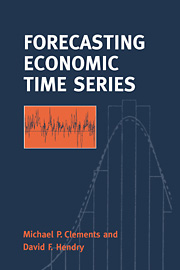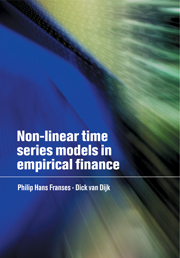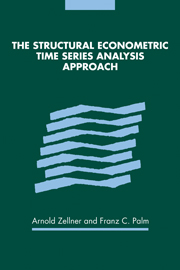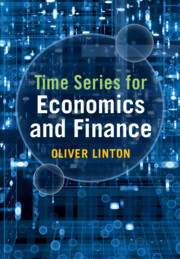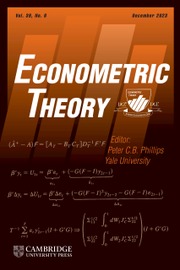Forecasting Economic Time Series
David Hendry is one of the world's leading econometricians, and in this major new work he and Michael Clements provide an extended formal analysis of economic forecasting with econometric models: their analysis builds in many of the features of the real world that are often overlooked in traditional, textbook analyses of forecasting. Consequently, Clements and Hendry are able to suggest ways in which existing forecasting practices can be improved, as well as providing a rationale for some of the habitual practices of forecasters that have hitherto lacked a scientific foundation.
- Professor Hendry is perhaps the most distinguished scholar in this field in the world
- Clear, accessible and coherent exposition, based on Marshall Lectures
- Important original research and analysis, with major policy implications
Reviews & endorsements
'Perhaps one of the most appealing features of the book is the systematic way in which it outlines and uncovers problems in forecasting, lays out possible solutions, and uses Monte Carlo, theoretical and empirical evidence to assess the potential solutions. Another appealing feature is that beginning researchers who are generally interested in serious (empirical) scientific investigation can learn much from noting how Clements and Hendry uncover, assess, and examine important issues in the area of economic forecasting. A third feature worth noting is the plethora of insightful and detailed empirical and Monte Carlo evidence. Forecasting Economic Time Series not only elucidates in detailed fashion how to construct macroeconomic forecasts, but also contains many hints on how to construct good macroeconomic forecasts. This makes it a must for forecasters' Journal of the American Statistical Association
Product details
November 1998Paperback
9780521634809
392 pages
229 × 152 × 22 mm
0.57kg
43 tables
Available
Table of Contents
- 1. An introduction to economic forecasting
- 2. First principles
- 3. Evaluating forecast accuracy
- 4. Forecasting in univariate processes
- 5. Monte Carlo techniques
- 6. Forecasting in co-intergrated systems
- 7. Forecasting with large-scale macro-econometric models
- 8. A theory of intercept corrections: beyond mechanistic forecasts
- 9. Forecasting using leading indicators
- 10. Combining forecasts
- 11. Multi-step estimation
- 12. Parsimony
- 13. Testing forecast accuracy
- 14. Postscript.

